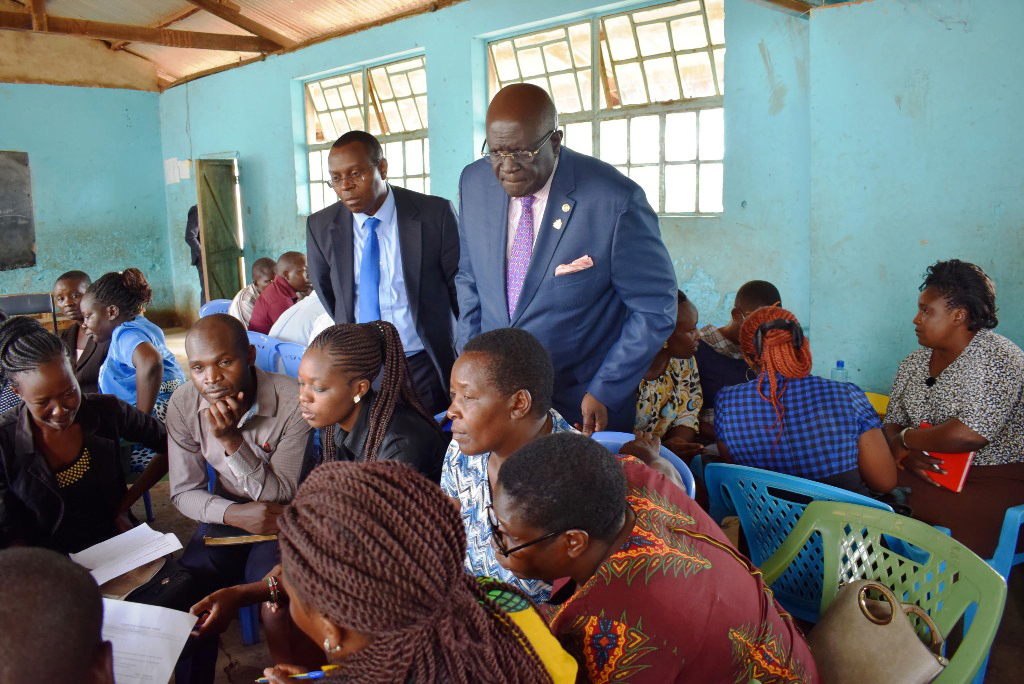By Roy Hezron
The current set up of secondary school education in Kenya is a major contributor of inequity in the country due to paramount importance of the Kenya Certificate of Secondary Education (KCSE) grade in career options and social standing, a study has shown.
The report, titled Is our Secondary School System Inequitable by Design? Facts and Figures for Evidence-based Building Back Better, which was commissioned by Usawa Agenda, a Non-Governmental Organization, found out that the current set up of the country’s secondary school education has created inequity perpetuated by the disparities seen in the choice of careers.
The survey, which was conducted last year 2021, involved 376 secondary schools that were randomly sampled through the stratified method at three levels – county, gender and category of schools.
The target was to select 8 secondary schools from each county stratified into 2 schools for each category of sub-county, county, extra-county and national, while within the strata, there was further classification of boys, girls and mixed secondary schools.
The first one to be conducted by the NGO on secondary school education and released in May 6, 2022, the study further established that the system has also built unequal social systems based on grades scored in KCSE examinations.
The key facts the survey established is that the category of secondary school the learner attends contributes more to their KCSE grade than their entry marks, (read the Kenya Certificate of Primary Education, KCPE marks); and that only 3 in 10 surveyed boarding schools reported having adequate space in their dormitories.
The other facts are that girl schools are generally less equipped with Biology, Physics and Chemistry laboratories compared to boy schools; while attending a school with a high proportion of Teachers Service Commission (TSC) employed teachers has a significant positive contribution to a learner’s final grade.
Only 3 in 10 secondary school teachers are trained on using Information and Communication Technology (ICT) in teaching and learning, the report states.
“The above factors, put together and combined with the paramount importance of the KCSE grade in career options and social standing, make the secondary school system as currently set up, the citadel of inequity in the country,” reads the report in part.
According to the results of the survey, coming at a time the country is preparing to transition the pioneer group of the Competency Based Curriculum (CBC) out of primary education and into junior secondary in January next year; an increase of one mark in the candidate’s entry score is associated with only 0.16 points addition to the candidate’s mean grade, while a one unit increase in the learners to teacher ratio is associated with 1.04 points decline in the candidate’s overall grade.
The report also establishes that attending a county school is associated with scoring similar points in KCSE examinations with a fellow candidate who attended a sub county school, while attending an extra-county school is associated with scoring 2.51 points more in KCSE examinations than a fellow candidate who attended a sub-county school.
On the other hand, the findings show that attending a national school is associated with scoring 5.43 points more in KCSE than a fellow candidate who attended a sub-county school, while attending a boarding school is associated with scoring 7.67 points more than a fellow candidate who attended a day school.
For girls, the study found out that attending a girl school is associated with scoring 1.19 points more than a fellow girl who attended a mixed school, while attending a school with a library is associated with scoring 1.67 more points in KCSE examinations than a fellow candidate who attended a school without a library.
Further, the report shows that a one per cent increase in teacher absenteeism is associated with 0.16 points decline in the candidates’ mean grades, while a one unit increase in the proportion of TSC teachers is associated with 7.48 points increase in the candidates’ KCSE mean grades.
The study also shows that attending a school where the current principal has served in the same capacity and school for between 5 and 8 years is associated with scoring 4.76 less points in KCSE examinations than a counterpart in a school where the principal has served for less than one year in the same capacity.
Of equal importance is that attending a school where the current principal has between 5 and 8 years’ experience is associated with scoring 14.2 more points in KCSE compared to a counterpart in a school where the principal has less than one-year experience.
According to Usawa Agenda Executive Director Dr Emmanuel Manyasa, the heated debate around the implementation of the new curriculum should be devoid of some critical facts that need to inform the otherwise healthy discussion around the switch from the 8-4-4 system of education to the current one.
“The findings in this report are groundbreaking and point to many gaps that require urgent attention if we are to live up to the global mantra of building back better. Importantly, this report is primed to bridge the evidence gaps in the ongoing national discourse on the implementation of CBC,” notes Dr Manyasa in the report.






